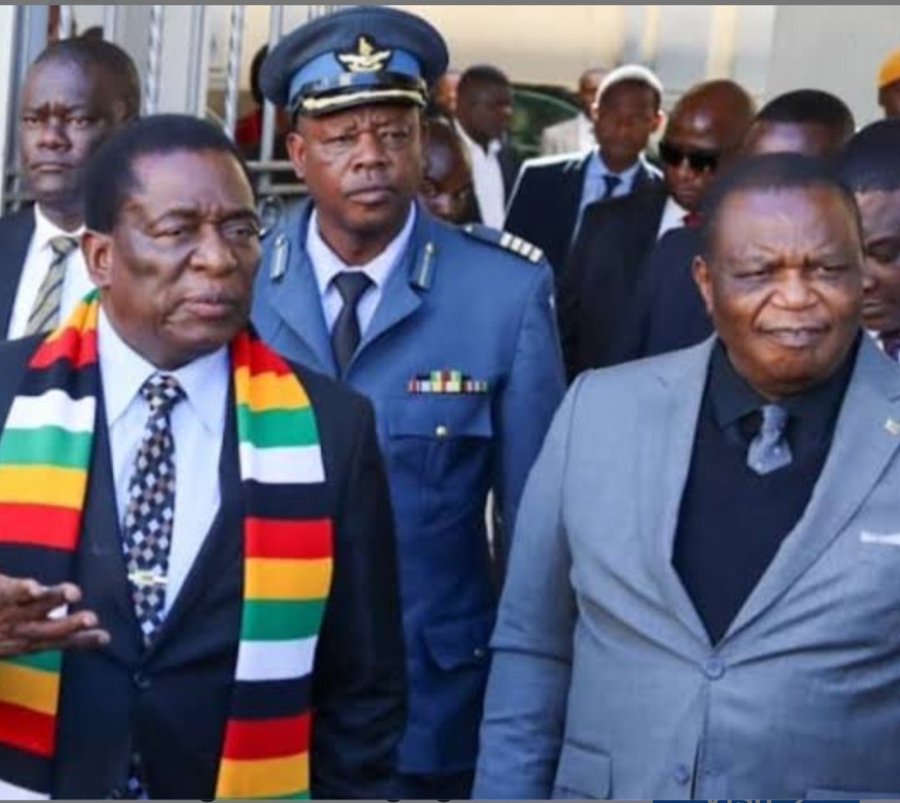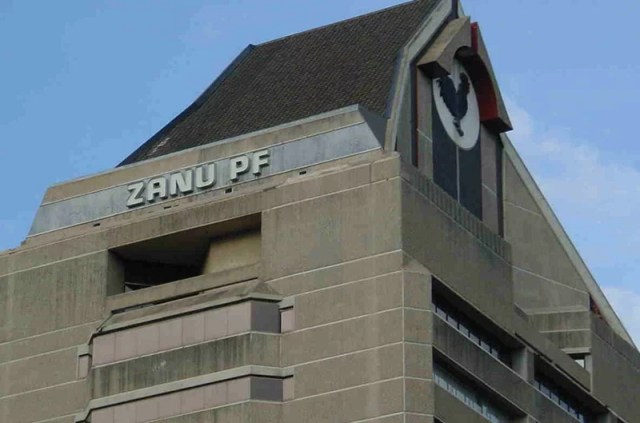MNANGAGWA EYES THIRD TERM IN POWER: ZIMBABWE AT A CROSSROADS

In a bold and controversial move, Zimbabwean President Emmerson Mnangagwa’s hidden plan to stay in power for a third term is now clear. This push for a longer time in office has caught the attention of people in Zimbabwe and around the world. Mnangagwa’s ruling party, Zanu PF, is supporting his goal to keep leading the country, even though the law says otherwise.
During a big event in Masvingo, Robson Mavhenyengwa, the provincial chairman of Zanu PF, led the crowd in shouting support for Mnangagwa. The crowd cheered loudly as Mavhenyengwa called for Mnangagwa to stay in power until 2030. The slogan “2030 vaMnangagwa vanenge vachipo!” became a chant, meaning they wanted Mnangagwa to still be president in 2030. This kind of chanting is not new; back in 2018, there were similar calls for Mnangagwa to win his second term, showing that his supporters have always wanted him to stay in power.
However, there is a big problem. Zimbabwe’s Constitution, which was made in 2013, says that a president can only serve two terms, each lasting five years. Section 91(2) of the Constitution is very clear: once someone has served two terms, they cannot run for president again. This means that Mnangagwa, who first won in 2018 and was re-elected last year, has reached his limit according to the law.
To get around this problem, Mnangagwa and his party will have to change the Constitution. But this is not easy. They would need a two-thirds majority in Parliament to make this change, and they would also need the people of Zimbabwe to agree through a referendum. Changing the Constitution like this is meant to be difficult to protect democracy. It ensures that no leader can change the rules to stay in power forever.
There is also another issue that makes things more complicated. Even though Zanu PF has a big number of members in the House of Assembly, this is because of their actions against the opposition party, CCC. But in the Senate, Zanu PF does not have the same level of control. This makes it harder for Mnangagwa to easily change the Constitution. It means that there could be resistance from both inside his own party and from the people outside the party who disagree with his plan.
If Mnangagwa goes ahead with his third-term bid, it will raise important questions about Zimbabwe’s future as a democracy. This move is part of a bigger trend seen in other African countries where leaders try to change the rules so they can stay in power longer. Such actions often damage democracy and can lead to instability. The international community is watching closely to see what happens in Zimbabwe because the effects could go beyond Zimbabwe’s borders. It could affect how other countries in the region think about leadership and the rule of law.
Zimbabwe is now facing a difficult choice. Should they allow Mnangagwa to change the Constitution and stay in power, or should they follow the rules and keep the two-term limit? This debate is about more than just one person staying in office. It is about the country’s commitment to democracy and whether leaders should follow the same rules as everyone else.
What happens next will shape the future of Zimbabwe’s democracy. If Mnangagwa succeeds in his quest for a third term, it will leave a lasting mark on his legacy and the country’s political landscape. It will show whether Zimbabwe is moving towards stronger democracy or if it is heading in a different direction.
As this political battle continues, one thing is clear: Zimbabweans are watching, and the world is watching too. The decisions made in the coming months will have a big impact on the country for years to come. Whether Mnangagwa will be able to stay in power or not, this moment will define Zimbabwe’s path for the future.

